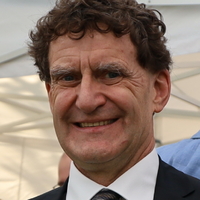Scholar in residence 1 September 2025 – 28 January 2026
Allen D. Malony is a Professor in the Department of Computer Science (CS) at the University of Oregon (UO) and the Director of the Oregon Advanced Computing Institute for Science and Society (OACISS). He graduated with a Ph.D. degree from the University of Illinois at Urbana-Champaign in 1990. He received the National Science Foundation (NSF) National Young Investigator award in 1994. Dr. Malony was a Fulbright Research Scholar to The Netherlands (1991) and to Austria (1999). He received the Alexander von Humboldt Research Award for Senior U.S. Scientists in 2002. In 2016, Dr. Malony was named the Fulbright-Toqueville Distinguished Chair by the Fulbright Commission Franco-Americaine, France. He was selected as the Fulbright-Nokia Distinguished Chair in Information and Communications Technology from the Fulbright Finland Foundation in 2022.
Dr. Malony’s research interests are in high-performance computing (HPC), parallel performance analysis, scientific computing, and computational/data science. He directs the TAU research group at UO which develops the TAU Performance System, a leading open source parallel performance tool suite. Dr. Malony has published over 300 peer-reviewed journals, book chapters, and conference/workshop papers throughout his career. He is the CEO and Director of ParaTools, Inc., a company he founded with Dr Sameer Shende (President and Director) in 2004. ParaTools specializes in high-performance computing (HPC) performance engineering services.
At Digital Futures, he will work with Dr. Stefano Markidis and his team in the KTH Department of Electrical Engineering and Computer Science, Division of Computational Science and Technology. Together, they will work to incorporate more performance analysis and monitoring in plasma simulations as part of the PLASMA-PEPSC EuroHPC Centre of Excellence. This work could be relevant to investigating deep learning and surrogate modeling to codes used in plasma computations, such as particle-in-cell (PIC). More broadly, the Digital Futures environment will be an opportunity for Dr. Malony to engage with other researchers in domain areas where advanced computing is a key component.
While the need for computational capabilities might not be as extreme as in the project above, the integration of HPC with scientific investigation at large — whether based on simulation modeling, physical experiments, data analytics, or digitalization — is important for driving innovation in the future. Dr. Malony hopes to meet new colleagues, gain new perspectives, and broaden his knowledge of research challenges and possible solutions in our future ever-expanding digital world.
Contact: malony@cs.uoregon.edu

